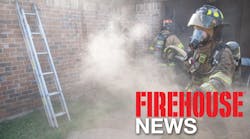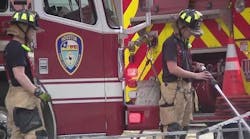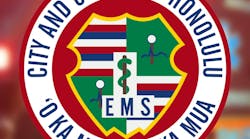Eastern Kentucky University’s use of a campus-based component for the Fire, Arson and Explosion Investigation (FAEI) degree program is not only a departure compared to its other online bachelor programs, it’s essential for the delivery of experiential learning.
“We’ve had administration and engineering technology degrees online for some time,” said Greg Gorbett, a lead professor for the program. “They are perhaps easier to present online than the investigation degree without having a hands-on component.” With this residency, he said, “students are going to learn a lot of different skills while on campus. We will tear apart appliances and look for electrical failures, grid explosion scenes and dig through fire debris for evidence.”
During the year, a summer residency will feature portions of two upper-division courses. The courses and their key provisions are central to the new FAEI online bachelor’s degree:
• FSE 380 – Fire and Explosion Scene Analysis. This is an in-depth study of fire, arson and explosive investigations. Special emphasis is placed on the principles and techniques of scene preservation, analysis, management of investigations and documentation of the scene to determine origin and cause.
“In FSE 380, I focus on how students actually review the national fire investigation reports to see if they follow scientific method they look at several of these reports. Students are really going through an investigation academy,” Gorbett said. “We use proficiency testing in this class throughout to make sure everyone is on the same page. Students can expect to see mid-level complexity of fire scenes and low-level complexity of explosion scenes. In all participants will investigate two to three fire scenes and perhaps one explosion scene. During this class, they should be refining some of their skills, and I review all of their documentation of the scenes as a basis of their grade.”
• FSE 450 – Advanced Explosion and Bombing Investigation. This course offers an exhaustive study of explosion scene investigation. Participants will see and emphasis on the principles and techniques of scene preservation analysis, management of investigative functions, documentation of scene and determination of the cause of explosions.
The second summer residency features two additional advanced courses, culminating in the awarding of a bachelor’s degree.
• FSE 370 – Electrical and Mechanical Principles Related to Fire Investigations. This course, according to EKU’s catalog, “provides a summary of design criteria for electrical and mechanical systems and components relative to fire safety. Students use laboratory experiments, exemplar components and photographs depicting system and component failures that result in fire.” Students learn from applying destructive and non-destructive analysis of components and systems.
“During the online portion of the class, students learn the basics of electricity—both residential and commercial applications,” said Corey Hanks, EKU lecturer and electrical failure expert. “It’s important for students to know electricity works so they can identify issues that contribute to fires, and instances where electricity is not a factor.
“When students participate in the residency portion of FSE 370, we will look at how appliances and other electrical components fare in a fire…or when a student encounters a molten mass of plastic and metal, how they can go about seeing if it was a source or the result of a fire.”
This hands-on portion is crucial, Hanks said, because “often electricity is blamed on a fire by those who do not understand electricity. We will be in rooms gutted by fire to perform electrical evaluations, collect evidence and either eliminate electrical sources as cause of a fire or justify ruling them out. Part of this involves examining databases to identify electrical appliances and equipment that has been identified as problematic. Because in the real world, finding a faulty device and reporting it to the manufacturer and safety agencies will help reduce similar failures resulting in fires.”
• FSE 495 – Fire Arson and Explosion Case Preparation. This is the final course in the degree program. It requires students to prepare fire, arson and explosion cases for trial, including preparing demonstrative evidence, scene documentation for presentation, rules of evidence, case review and analysis, and testimony.
“This is a capstone course for the entire degree program. We assess their skills as investigators and how they have synthesized all the material to this point,” Gorbett said. Usually, four to five participants make up a team that is responsible for investigation reports – some of which run 82 to 100 pages. “They have a least a dozen interviews to do regarding a scene they are processing. They also present their findings to faculty and outside experts for review, Gorbett said.
“The real strength of this course is that we can test their skills, which you can’t do in the real world, where oftentimes investigators are competing experts,” he said. “The academic environment provides a neutral ground on which all experts can share freely.”
—Paul Snodgrass





